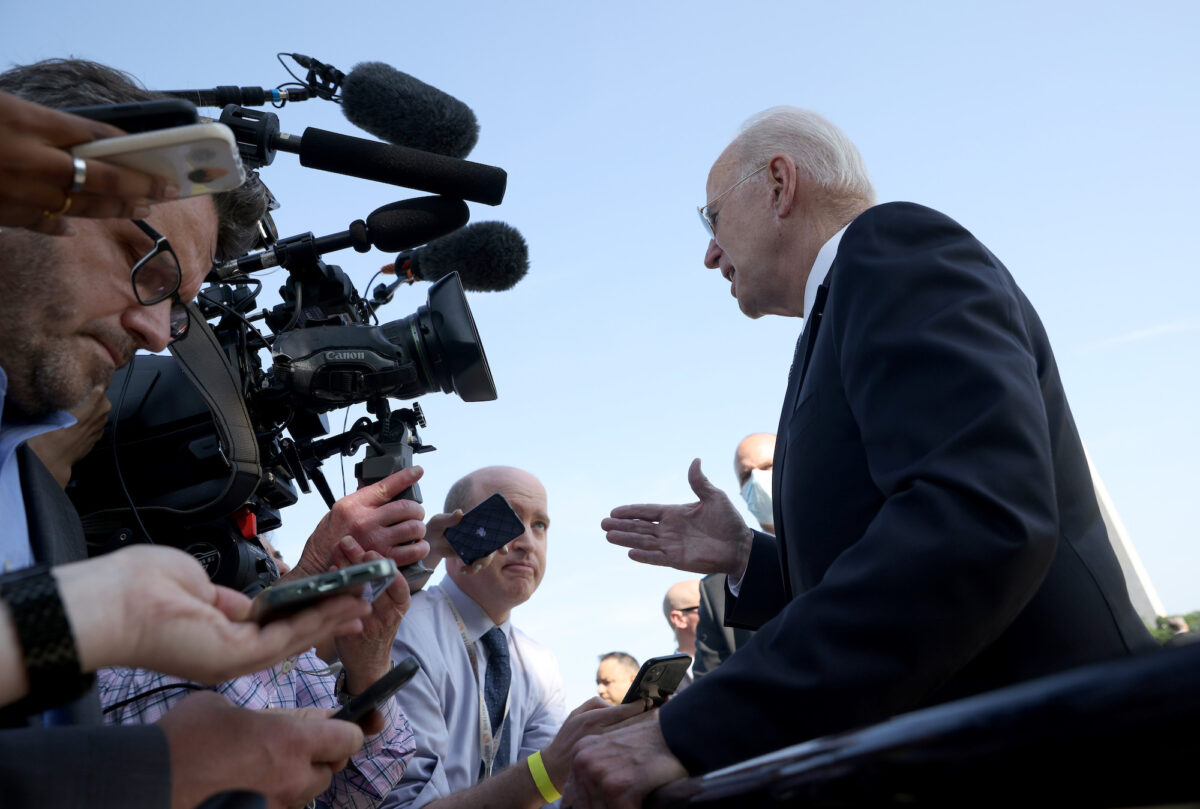If Leo Varadkar finds it appropriate to expel a Russian diplomat at the behest of Theresa May, it’s about time he considered expelling the US military from Shannon. The time has come for Ireland to either drop the pretence of being a neutral country – or to actually start acting like one.
The US and Canada, along with 14 EU countries, have said they will expel Russian diplomats in response to the chemical attack on former Russian spy Sergei Skripal and his daughter in Salisbury in early March, which the UK has blamed on Moscow.
The announcements on the expulsions were coordinated on a day when Russia was in a state of national mourning after a devastating fire that killed 64 people, 41 of them children, in a Siberian shopping centre.
One after the other, the vassal states of Europe fell in line. Now it’s our turn.
Jumping on the bandwagon
Ireland should have avoided jumping on this bandwagon, not least because there is still no solid evidence that the Russian government was behind the poisoning of Skripal and his daughter. Alas, the verdict has come before the trial and Theresa May has managed to milk the incident for all it’s worth.
It is totally at odds with our supposed neutrality to act “in solidarity” with Britain over unproven and hotly disputed claims of a Russian chemical attack in Britain while at the same time operating a de facto US military base out of Shannon Airport.
Of 451 military aircraft landings at Shannon in 2017, 402 of them were US military aircraft, according to Shannonwatch. Those flights were in addition to 334 US military-contracted flights carrying the personal weapons of troops that landed at Shannon last year.
We are almost certain that the US government has carried prisoners through Shannon as part of its illegal extraordinary rendition programme. We know they routinely carry weapons through Irish airspace to be used in Middle Eastern wars. But that’s all fine. Let them at it, the Irish government says.
Kowtowing to Britain
Ireland’s decision to kowtow to Britain is perhaps even worse than our turning a blind eye to American activities in Shannon. Britain, our “closest neighbour” who we have chosen to act in solidarity with today, still refuses to help investigations into the 1974 Dublin and Monaghan bombings which took the lives of 34 people.
Since Varadkar is appalled by alleged State-sanctioned killings, he might be interested to learn that successive British governments have also repeatedly blocked Irish requests for an independent inquiry into the murder of solicitor Pat Finucane who was gunned down in his own home in 1989 as he and his family ate dinner together – a murder that was committed with “shocking” levels of British state collusion involving the army, the police and MI5.
Perhaps Varadkar could send a few British diplomats packing over those killings, which are undoubtedly more important to Irish people than an allegedly Russian-ordered assassination in Britain for which we have no proof. Unlikely though, as that won’t earn him a place at the good boys table in Brussels.
Pressure put on lab
London has accused Moscow of not cooperating with the investigation, while at the same time refusing Russia’s request to be sent samples of the nerve agent used on Skripal. Craig Murray, former UK ambassador to Uzbekistan has reported that sources at Porton Down lab were angry at the pressure put on them to claim the nerve agent was manufactured in Russia when in fact they could not say that with certainty.
After a tense meeting, he told the BBC, the scientists agreed to the carefully worded phrasing that the chemical used was “of a type developed by Russia” – in the sense that, to borrow Murray’s comparison, the the laptop or phone you are reading this on was probably manufactured in China, but it could be described as being “of a type developed by the United States”.
We are told there is no plausible alternative to Russian State involvement. That is simply not true. It is possible, for example, that rogue elements within the Russian state acted without the Kremlin’s knowledge.
It is also possible that one of Russia’s adversaries or one of its post-Soviet neighbours was involved – and we know that the ‘Novichok’ programme was based in Uzbekistan, not Russia – and that it was the Americans, after the fall of the Soviet Union, who were involved in dismantling the lab where the nerve agent was tested.
Protecting their own interests
The reality is, Ireland has no way of knowing what happened and we are completely reliant on British intelligence agencies who are only focused on protecting their own interests.
Remember, it was Tony Blair who assured us that British intelligence agencies had “established beyond doubt” that Saddam Hussein had weapons of mass destruction – and we know how that turned out.
Much has also been made of the planned extension of the Russian embassy in Dublin – a curious decision for a country which isn’t exactly one of Russia’s biggest concerns on the world stage. Will the Russians use the space for spying purposes? It is not inconceivable to imagine – but it is laughable to think the UK and US are not also engaging in espionage activities in Ireland.
Russia customarily opts for tit-for-tat retaliations to this kind of action. In dancing to London’s tune, we risk damaging a positive relationship with Russia, simply because our leaders are afraid to stand out as contrarians in the EU.
Squandering goodwill
Russia was the first country to recognise Irish independence and we have always enjoyed a positive relationship with Moscow. In recent months, the government has increasingly focused on developing trade ties with Russia. The value of Irish exports to Russia increase by 40 per cent to €500 million last year.
Only a month ago, Minister of State for Trade Pat Breen was talking about attempts to reinvigorate diplomacy and trade between the two countries, which had previously been damaged due to EU sanctions. Following a visit to Moscow, Breen told the Irish Times there were huge opportunities for Irish companies in Russia, particularly in the agricultural sector.
Our decision to expel one Russian diplomat will hardly send shivers down Vladimir Putin’s spine, but there is no good reason in this case for us to jeopardise a flourishing economic and cultural relationship at all.
Russia’s ambassador to Ireland has spoken of the “huge amount of goodwill” between our two countries – something I can vouch for having spent time living in Russia where the mention of Irishness is met with huge levels of enthusiasm as far afield as Vladivostok.
It’s a shame that we are willing to squander some of that goodwill and act against our own economic interests purely to appease Britain and avoid a few minutes on the naughty step in Brussels.
Danielle Ryan is an Irish freelance journalist who has lived in the US, Russia and Hungary.
Source Article from https://www.sott.net/article/381400-On-the-Russian-diplomat-expulsion-Ireland-should-have-avoided-jumping-on-this-bandwagon
Related posts:
Views: 0
 RSS Feed
RSS Feed

















 March 30th, 2018
March 30th, 2018  Awake Goy
Awake Goy 







 Posted in
Posted in  Tags:
Tags: 
















